After a reenergising diner with a typical German meal… Sushis! My colleague (and now food mate!) Chay Te and I were ready to rock Day 2.
The day is structured the same way as Day 1 but I’ll not use the same titles and sections as yesterday for this report otherwise I’ll already create silos which would not be very DevOps! Instead I’ll try to group topics together and make maybe some unexpected links between them.
DevOps in Action
The pipeline is at the heart of the DevOps architecture so it is naturally a hot topic amongst DevOps professionals.
I’ve learned an interesting angle in the presentation from Swathi Poddar and Marcel Britsch where we can actually treat the delivery pipeline like a product. You can apply to this pipeline the same methodology and mindset you use for creating a product. In this view, a successful pipeline like a product give you a competitive advantage.
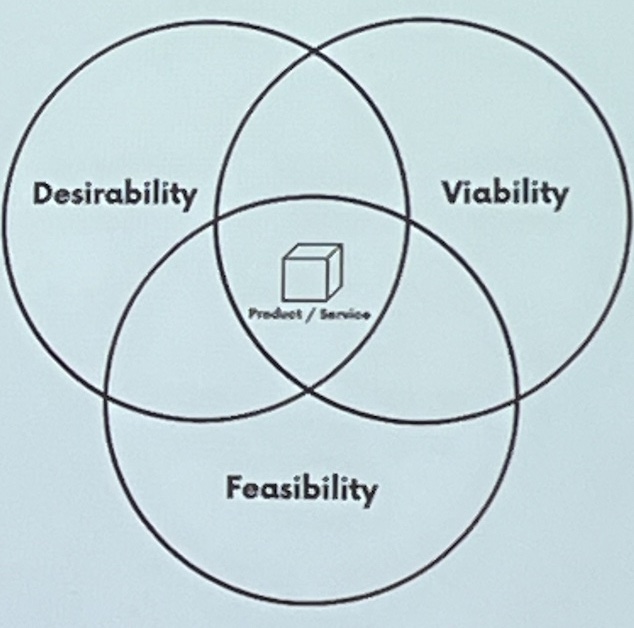
I’ve followed two open space discussion about pipelines in general and Jenkins in particular where everybody was sharing their experiences on their settings, challenges and solutions with them.
GitLab is in a fascinating position where they can say something like this:

In the short version, they are the users of their own product. It’s atypic! Another interesting fact about GitLab is that they have 0 offices! Awesome for a company with 1300+ team members collaborating in more than 65 countries/regions and having 30+ millions users. They are pretty much advanced in the DevOps culture and this brings its own challenges as staying competent and orchestrate, harmonize and synchronise this entire ecosystem according to Radovan Baćović who gave us this presentation. We never stop improving!
Jorge Castro in his speech shared his experience about BDD (Behaviour-Driven Development) that provides a way to improve quality and customer/developper experience. He defines quality as Three Amigos.
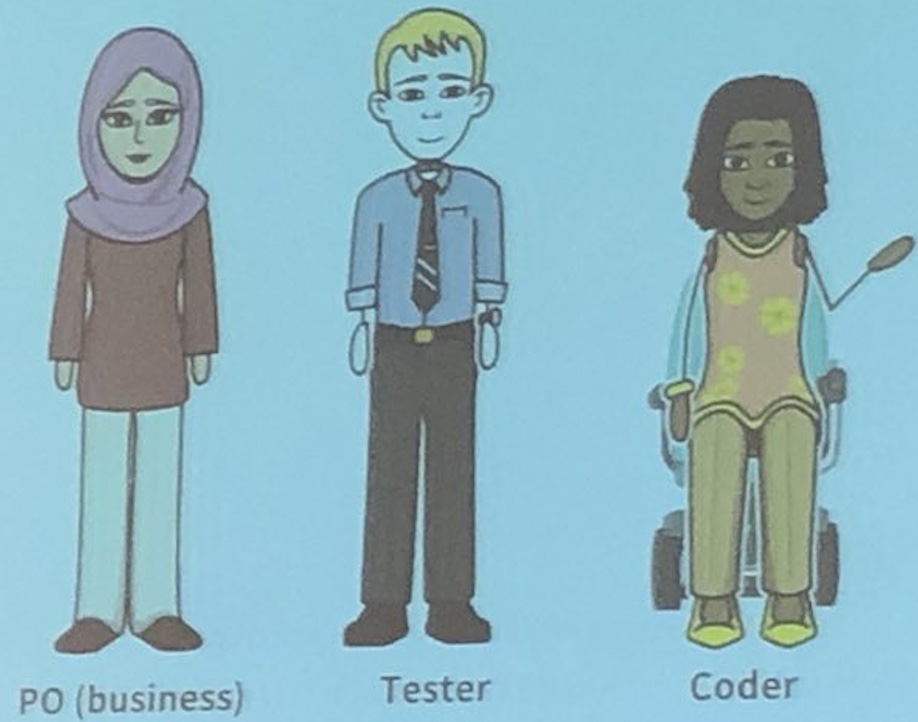
I’ve then attended a discussion about TDD (Test Driven Development) which is a subset of BDD and as we were in a small group, I’ve been kindly introduced to this software development process I didn’t know about. TDD process starts with defining the tests we would like to achieve then do the corresponding code development to pass those tests.
DevOps mindset for escaping any boxes
It’s a bit funny that DevOps is using containers as part of its technical tools whereas the DevOps mindset does everything to get out of them!
The presentation from Jemma Bolland about Meetings struck a chord. I’ve regularly attended meetings for years and felt that some were better than other. Jemma made me aware about behaviours I don’t always pay too much attention to. For example “silence is gold” was a haha moment for me because it is something that may feel unwelcome especially on remote meeting but it is actually a chance for anyone to speak. Making space for others is an art and all her insights should be the standard hygiene all of us use when entering any meeting. The internal dbi-services meetings I’ve attended to are so much in line already with those good practices that I realized like yesterday that dbi-services is more DevOps than they maybe know! Awesome!
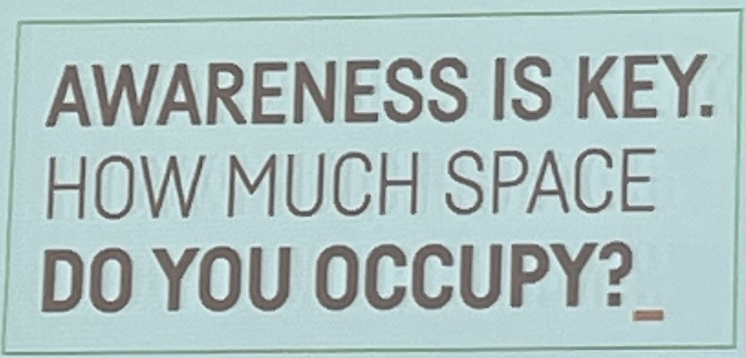
Yair Etziony shared in his presentation his experience about hiring people for building a DevOps Team. He tried to not make the interview too technical nor formal but to establish a discussion in order to evaluate the attitude of a candidate and see if she/he would be a good fit in the culture of his company. I feel DevOps mindset can also provide a new perspective in this area by improving this traditional exercise that is sometimes inefficient and too codified.
I was also surprised to learn that from his experience the new generation of tech he interviewed doesn’t know anymore the technology in-depth. He discovered the candidates didn’t know how containerisation is working or Kubernetes under the hood.
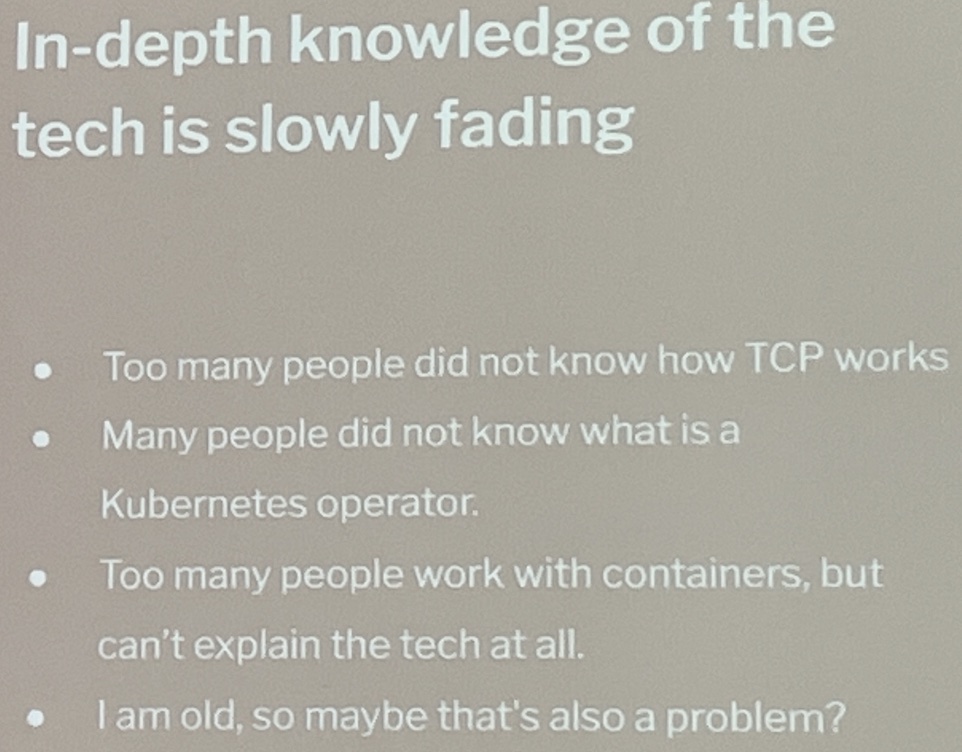
He concluded with a word on the OnBarding process but that would require another presentation. I would be very interested by this topic in order to compare it with our own OnBoarding in my DevOps Team in dbi-services.
Iris Hunkeler presentation on unconscious bias was enlightening. It made me aware that the gender bias starts early, that the judgement on a CV depends on the name and that we get stuck in stereotypes. The first step is to accept them and then to keep an awareness of those bias in our life not only at work but also with our family and friends. By being an ally we will improve together.
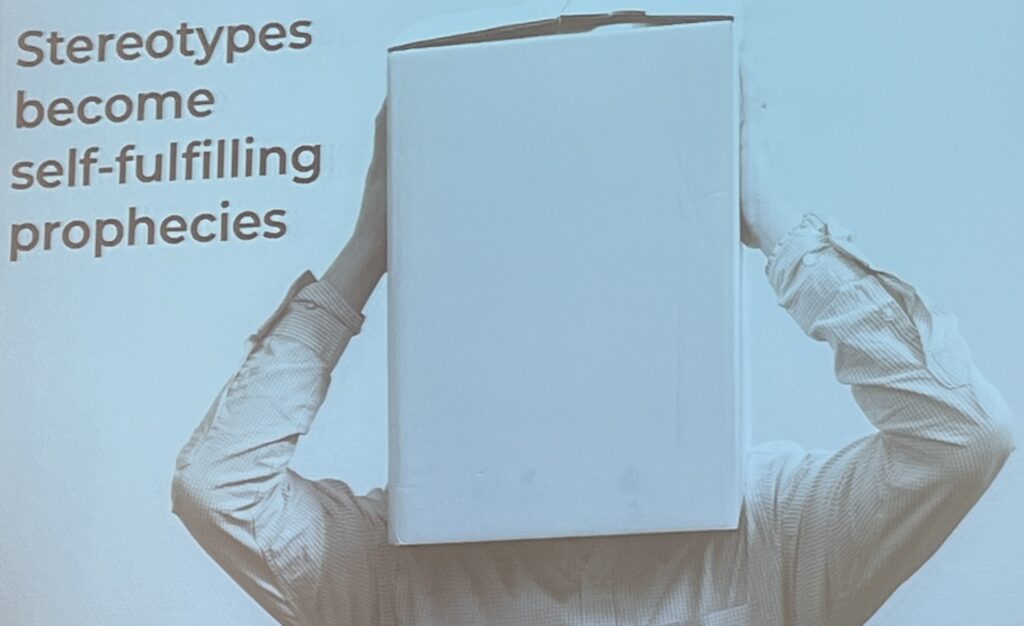
I dare to compare stereotypes with silos and DevOps being a merging culture should be a good environment to overcome them.
Ivan Merrill speech about Dashboards was instructive. We can’t rely on them as they could be too numerous to spot something and each incident is unique and needs its own data. They also introduce bias because there could be an incident whereas the dashboard is green. So as with the presentation from Iris on bias we need to be aware of them and overcome them.

I’ve learned a lot during these 2 days and I’m taking home several tools to experiment with in my daily job as a DevOps consultant. Great speakers, great event, thank you all!
![Thumbnail [90x90]](https://www.dbi-services.com/blog/wp-content/uploads/2025/05/martin_bracher_2048x1536.jpg)
![Thumbnail [90x90]](https://www.dbi-services.com/blog/wp-content/uploads/2024/03/AHI_web.jpg)
![Thumbnail [90x90]](https://www.dbi-services.com/blog/wp-content/uploads/2022/08/HER_web-min-scaled.jpg)